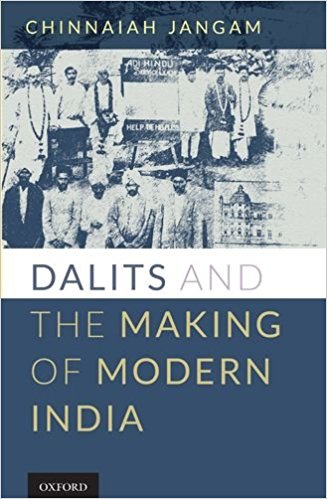If we are to see and analyse the agency of an untouchable in its struggles against British imperialism and against Brahmanism, a lot more needs to be done towards documenting the same and in exposing this ‘twin enemy’ of the people in general and of Dalits in particular. Over the years, there has been spate of some very serious scholarly work that documents Dalit struggles against Brahmanism and the political assertion of their movement as a whole. However, their vital role in anti-colonialism and in the making of modern nation needs a lot more attention than has been given otherwise. It is in this context and milieu that Chinnaiah Jangam’s work Dalits and the Making of Modern India breaks new ground in restoring the Dalit agency engaging the dominant discourse of nationalism in the pre-colonial times. The book provides a comprehensive archival study of Dalit struggles in carving their own dignity and modern positioning vis-à-vis colonial and Brahmanical modernity since the early nineteenth century. In this work, Jangam covers the Telugu speaking regions of the erstwhile Madras Presidency which has been witness to the presence of Dalits in the politics of nationalism and how they gradually develop a very distinct understanding of nation and nationalism that ran counter to both the colonial and Brahmanical project of nationalism.
Although, the counter culture against Brahmanism could be traced from the much earlier age of Buddhism till the recent past of Bhakti movement, Jangam’s work singularly succeeds in establishing the Dalit’s role in shaping up modernity and also the modern times. This differentiation between modernity and modern times as they came about in India is very significant, as it is here that one can clearly see Dalits thronging to modern practices that came along with colonialism and it is in this very process of learning, they also defined and enrich the modern times. For example, education, ever since the time of the big bang, was confined to Brahmins alone and the obvious result was a totally ignorant and obscurantist Indian society to the benefit of the former. Undoubtedly then, it is to the Dalits’ and other marginalized multitudes’ credit, that they got educated under the British established schools open to all castes, and then led the spread of education with scientific temperament in India.

